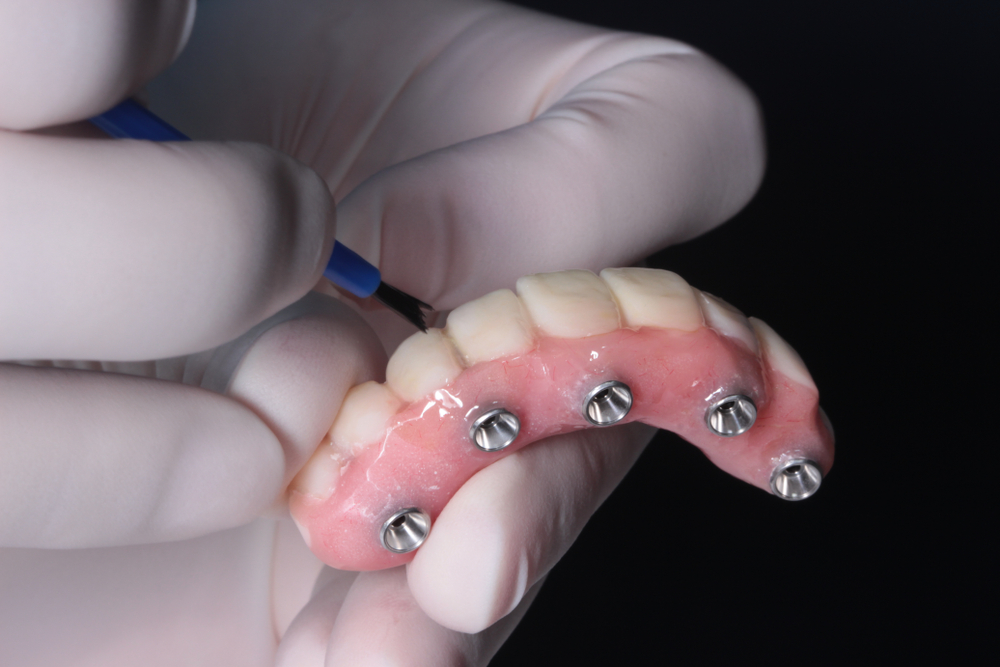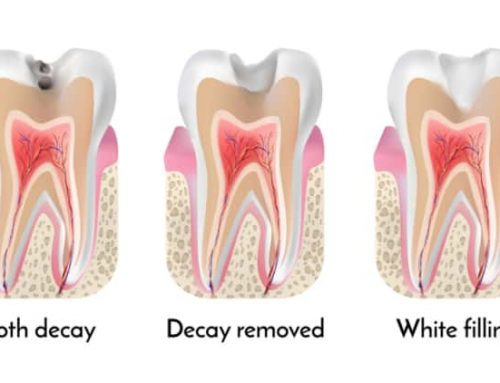Imagine being able to replace an entire arch of missing teeth with just four strategically placed dental implants. That’s the heart of the All-on-4 technique. It’s an innovative alternative to traditional dentures, suitable for both the upper and lower jaws. The beauty of this method lies in its simplicity and effectiveness. By placing two implants at the front and two at the back of your jaw, angled for maximum support, All-on-4 offers a stable and secure foundation for your new smile.
One of the standout features of All-on-4 is the possibility of immediate loading. This means that on the same day as your surgery, you can walk out of the dentist’s office with a full set of temporary teeth attached to your implants. It’s not just about aesthetics; it’s about restoring functionality almost instantly. Once the implants integrate with your jawbone, they’re fitted with the permanent prosthetic, completing your smile makeover.
All-on-4 vs. The Alternatives
Understanding the differences between All-on-4 dental implants, traditional dental implants, dental bridges, and dentures is crucial for making informed decisions about dental restoration options. Here’s a breakdown of each:
All-on-4 Dental Implants
- Definition: This method involves using four implants to support an entire arch of teeth. It’s a solution for those who have lost most or all of their teeth in one or both jaws.
- Unique Aspects: Requires only four implants for a full arch, and the rear implants are angled for maximum support. It often allows for immediate placement of a temporary set of teeth.
- Best For: Individuals with significant tooth loss who want a more permanent, stable solution without opting for individual implants for each missing tooth.

Traditional Dental Implants
- Definition: Dental implants are individual titanium posts inserted into the jawbone to replace single missing teeth. They are topped with a crown for a natural appearance.
- Unique Aspects: Each implant replaces one tooth. It’s a more invasive and time-consuming process, often requiring several months for the implant to integrate with the bone before placing the crown.
- Best For: Patients missing one or several teeth who prefer a permanent solution and have adequate bone density.
Dental Bridges
- Definition: Bridges are used to replace one or more missing teeth by anchoring to adjacent natural teeth or implants.
- Unique Aspects: Involves preparing the adjacent teeth by removing some enamel to fit crowns that support the bridge. It does not require surgery like implants.
- Best For: Those missing one or a few teeth with strong adjacent teeth for support, and who seek a less invasive option than implants.
Dentures
- Definition: Dentures are removable replacements for missing teeth and surrounding tissues. They can be complete (replacing all teeth) or partial.
- Unique Aspects: They are non-invasive and removable but less stable than implants. Dentures can affect speech and eating and require adjustments over time.
- Best For: Individuals with extensive tooth loss who may not be candidates for implants due to cost, health conditions, or insufficient bone density.
Comparative Summary
- Invasiveness: Traditional implants and All-on-4 are more invasive than bridges and dentures.
- Stability and Feel: All-on-4 and traditional implants offer a more natural feel and stability compared to bridges and dentures.
- Bone Preservation: Implants help preserve jawbone and prevent bone loss, a benefit not provided by bridges or dentures.
- Cost and Time: Traditional implants and All-on-4 generally involve higher costs and longer treatment times. Dentures and bridges are less costly and have shorter initial treatment periods.
Each of these options has its specific applications, advantages, and considerations. The right choice depends on the individual’s dental health, bone density, budget, and personal preferences.
What Makes the Best Candidate for All-on-4 Dental Implants?
The All-on-4 dental implant procedure is especially beneficial for certain individuals, making it a significant option in restorative dentistry. Ideal candidates are those who have lost most or all of their teeth in either the upper or lower jaw, making it a compelling alternative to traditional dentures. It’s particularly suited for people who have significant bone loss in the jaw, which often accompanies tooth loss, as the procedure requires less bone density than traditional implants due to the unique angle of implant placement.
People looking for a more permanent, stable solution compared to removable dentures can greatly benefit from All-on-4 implants. These implants are also suitable for individuals who seek to improve their overall oral function, including comfortable chewing and speaking, and who desire a quick transformation of their smile.
Patients who are in good general health and are free from conditions that impede healing or increase surgical risks, such as uncontrolled diabetes or certain heart conditions, are also good candidates. Additionally, those committed to maintaining good oral hygiene practices and regular dental visits post-procedure tend to experience the most success with All-on-4 implants.
The main determination whether a patient is a good candidate for All-on-4 Dental Implants is the dentist, Dr. Pickett himself. He’ll be able to provide the best recommendation as to whether that specific procedure is right for you and your smile. We want to ensure that you have a long-lasting, healthy smile that you can feel confident in public with in all situations.
Schedule a Consultation with Dr. Pickett
Come discuss with Dr. Tyson Pickett, DDS FAGD, DDS FAGD, DDS, FAGD whether All-on-4 dental implants are the right choice for you. You can schedule on our website or give us a call at (817) 431-5514.



